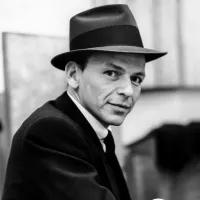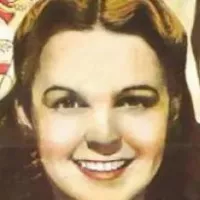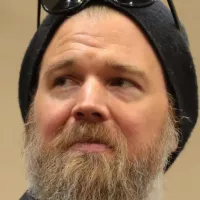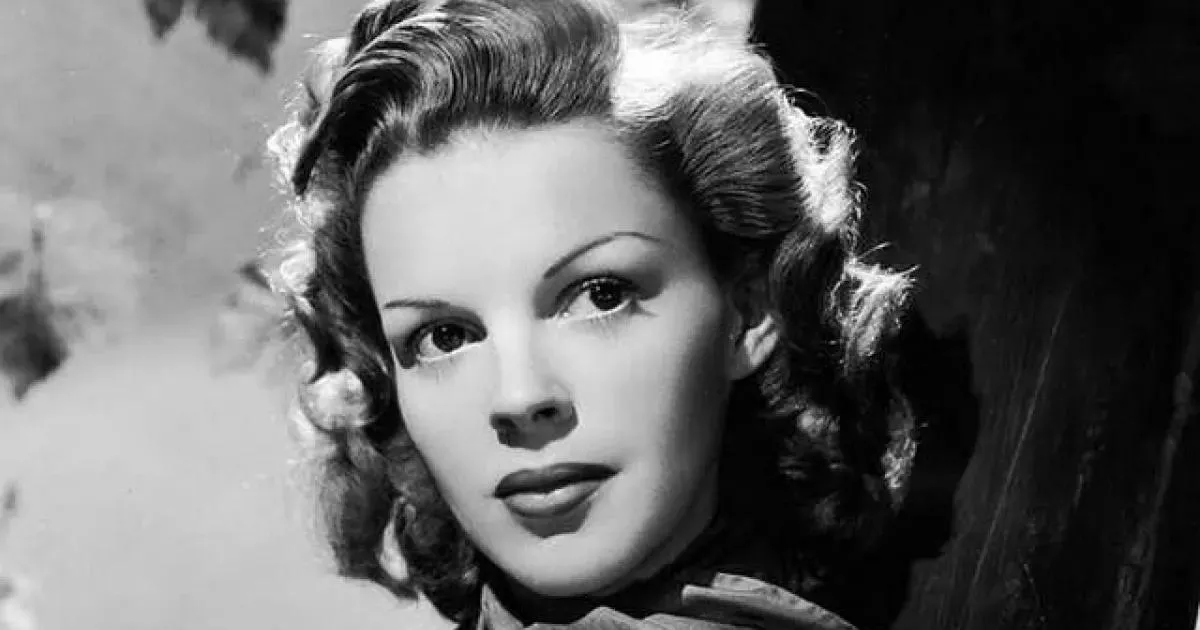Judy Garland was a celebrated American actress, singer, and vaudevillian, renowned for her powerful voice and emotional performances. She gained international stardom as Dorothy Gale in The Wizard of Oz (1939) and maintained a successful career spanning film, stage, and music. Garland released eight studio albums and had numerous recordings inducted into the Grammy Hall of Fame. She was the youngest and first female recipient of the Cecil B. DeMille Award. Posthumously, she received a Grammy Lifetime Achievement Award and was recognized as one of the greatest female screen legends by the American Film Institute.
1900: The Wizard of Oz Book
In 1938, Judy Garland was cast as Dorothy Gale in "The Wizard of Oz", a film based on the 1900 children's book by L. Frank Baum.
June 10, 1922: Judy Garland's Birth
On June 10, 1922, Judy Garland, born Frances Ethel Gumm, was born. She became an American actress, singer, and vaudevillian.
June 1926: Relocation to Lancaster, California
In June 1926, the Gumm family relocated to Lancaster, California, following rumors about her father.
1928: Enrolled in dance school
In 1928, The Gumm Sisters enrolled in a dance school run by Ethel Meglin, proprietor of the Meglin Kiddies dance troupe.
1929: Film Debut in The Big Revue
In 1929, the Gumm Sisters made their film debut in a short subject called "The Big Revue", performing "That's the Good Old Sunny South".
1930: Appearances in Vitaphone shorts
In 1930, the Gumm Sisters appeared in two Vitaphone shorts: "A Holiday in Storyland" and "The Wedding of Jack and Jill", followed by an appearance in "Bubbles".
1934: Name change to the Garland Sisters
By late 1934, the Gumm Sisters had changed their name to the Garland Sisters.
1934: Performance at the Oriental Theater
In 1934, The Gumm Sisters performed in Chicago at the Oriental Theater with George Jessel, who encouraged them to choose a more appealing name.
1934: Possible origin of the name Garland
Several stories exist about the origin of the name Garland. One story attributes it to George Jessel after Carole Lombard's character Lily Garland in the film "Twentieth Century" (1934).
August 1935: The Garland Sisters broke up
In August 1935, The Garland Sisters broke up, when Mary Jane "Suzanne" Garland flew to Reno, Nevada and married musician Lee Kahn.
September 1935: Audition at Metro-Goldwyn-Mayer Studios
In September 1935, Louis B. Mayer asked Burton Lane to watch the Garland Sisters. Shortly after, Judy Garland and her father were brought for an audition at Metro-Goldwyn-Mayer Studios, where she performed "Zing! Went the Strings of My Heart" and "Eli, Eli", resulting in her signing a contract with MGM.
November 16, 1935: Father Hospitalized
On November 16, 1935, 13-year-old Judy Garland learned that her father had been hospitalized with meningitis.
1935: Appearance in La Fiesta de Santa Barbara
In 1935, The Gumm Sisters made their final on-screen appearance in an MGM Technicolor short entitled "La Fiesta de Santa Barbara".
1935: Signed to Metro-Goldwyn-Mayer
In 1935, at the age of 13, Judy Garland was signed to Metro-Goldwyn-Mayer (MGM).
1936: Cast in Every Sunday
In 1936, Judy Garland performed her rendition of "Zing! Went the Strings of My Heart" and was cast opposite Deanna Durbin in the musical short "Every Sunday".
1937: Beginning of Judy Garland's "innocent years"
In 1937, Joan E. Dowlin marked the beginning of Judy Garland's "innocent years" in her music career, which lasted until 1945. During this time, Garland's voice was vibrant and her musical expression exuberant.
1937: Appeared in Thoroughbreds Don't Cry
In 1937, Judy Garland appeared in "Thoroughbreds Don't Cry" with Mickey Rooney.
1937: Performance in Broadway Melody of 1938
In 1937, Judy Garland sang "You Made Me Love You (I Didn't Want to Do It)" to a photograph of Clark Gable in "Broadway Melody of 1938".
1937: Original Film of A Star Is Born
In 1937, the original "A Star Is Born" film was released. It was later remade in 1954 starring Judy Garland.
October 13, 1938: Filming commenced for The Wizard of Oz
On October 13, 1938, shooting commenced for "The Wizard of Oz".
1938: Performance in Broadway Melody of 1938
In 1938, Judy Garland sang "You Made Me Love You (I Didn't Want to Do It)" to a photograph of Clark Gable in "Broadway Melody of 1938".
1938: Love Finds Andy Hardy
In 1938, Judy Garland was cast in "Love Finds Andy Hardy" as a girl-next-door to Mickey Rooney's character Andy Hardy.
1938: Casting as Dorothy Gale
In 1938, Judy Garland, at sixteen, was cast as Dorothy Gale in "The Wizard of Oz".
March 16, 1939: Filming Completed for The Wizard of Oz
On March 16, 1939, filming was completed for "The Wizard of Oz".
1939: Academy Juvenile Award
At the 1939 Academy Awards ceremony, Judy Garland received an Academy Juvenile Award for her performances in 1939, including "The Wizard of Oz" and "Babes in Arms".
1939: Babes in Arms
In 1939, Judy Garland and Mickey Rooney teamed as lead characters in "Babes in Arms".
1939: Dorothy Gale in The Wizard of Oz
In 1939, Judy Garland rose to international fame for her role as Dorothy Gale in "The Wizard of Oz".
1939: The Wizard of Oz Release
In 1939, Judy Garland starred in The Wizard of Oz, a film based on the 1900 children's book by L. Frank Baum.
1940: Andy Hardy Meets Debutante
In 1940, Judy Garland and Mickey Rooney teamed up in "Andy Hardy Meets Debutante".
1940: Starring in Three Films
In 1940, Judy Garland starred in "Andy Hardy Meets Debutante", "Strike Up the Band", and "Little Nellie Kelly", where she played her first adult role.
1940: Romance with Artie Shaw and David Rose
In early 1940, Judy Garland experienced her first serious adult romance with bandleader Artie Shaw and was devastated when he eloped with Lana Turner. In the early 1940s, she began a relationship with musician David Rose.
July 27, 1941: Wedding to David Rose
On July 27, 1941, Judy Garland and David Rose were wed when Judy Garland was only 19 years old.
1941: Life Begins for Andy Hardy
In 1941, Judy Garland and Mickey Rooney teamed up in "Life Begins for Andy Hardy".
1942: For Me and My Gal Film Debut
In 1942, Judy Garland starred in "For Me and My Gal" alongside Gene Kelly, marking Kelly's first appearance on screen.
January 1943: Trial Separation from David Rose
In January 1943, Judy Garland and David Rose agreed to undergo a trial separation.
1943: Glamor Treatment in Presenting Lily Mars
In 1943, Judy Garland received a "glamor treatment" in "Presenting Lily Mars," wearing grown-up gowns and styling her hair. Also in 1943, she had a second abortion after becoming pregnant during an affair with actor Tyrone Power.
April 1944: Escorted Benjamin O. Davis Sr. to reception
In April 1944, Judy Garland escorted Brigadier General Benjamin O. Davis Sr. to a reception honoring the general at the home of Ira Gershwin. Davis was the first black general and highest-ranking black officer in the U.S. military.
1944: Divorce from David Rose
In 1944, Judy Garland and David Rose divorced.
1944: Starred in Meet Me in St. Louis
In 1944, Judy Garland starred in the musical film "Meet Me in St. Louis".
June 15, 1945: Marriage to Vincente Minnelli
On June 15, 1945, Judy Garland married Vincente Minnelli after developing a relationship during the filming of "Meet Me in St. Louis."
1945: End of Judy Garland's "innocent years"
In 1945, Joan E. Dowlin marked the end of Judy Garland's "innocent years" in her music career, which began in 1937. During this time, Garland's voice was vibrant and her musical expression exuberant.
1945: The Clock Film Release
In 1945, Judy Garland starred in "The Clock", her first straight dramatic film. The film was critically praised but audiences still expected her to sing.
1945: Affair with Orson Welles
In early 1945, Judy Garland had a brief affair with actor and film director Orson Welles, who was married to Rita Hayworth at the time. They remained on good terms after the affair ended.
March 12, 1946: Birth of Daughter Liza Minnelli
On March 12, 1946, Judy Garland gave birth to her daughter Liza Minnelli with Vincente Minnelli.
1946: The Harvey Girls and Till the Clouds Roll By Film Release
In 1946, Judy Garland starred in "The Harvey Girls", introducing the song "On the Atchison, Topeka and the Santa Fe", and "Till the Clouds Roll By".
July 1947: Suicide Attempt and Treatment
In July 1947, during the filming of "The Pirate", Judy Garland suffered a nervous breakdown and attempted suicide by cutting her wrist. She spent two weeks in treatment at the Austen Riggs Center.
September 1947: Joined Committee for the First Amendment
In September 1947, Judy Garland joined the Committee for the First Amendment, a group of Hollywood celebrities supporting the Hollywood Ten during the HUAC hearings.
October 26, 1947: Hollywood Fights Back radio broadcast
On October 26, 1947, Judy Garland participated in the all-star radio broadcast "Hollywood Fights Back", urging listeners to speak up against the HUAC.
May 1948: The Pirate Film Release
In May 1948, "The Pirate" was released. It was the first film starring Judy Garland since "The Wizard of Oz" that did not make a profit.
July 18, 1948: Suspension from The Barkleys of Broadway
On July 18, 1948, Judy Garland was suspended by MGM after missing several shooting days for "The Barkleys of Broadway" due to health issues and was replaced by Ginger Rogers.
1948: Guest Appearance in Words and Music
In 1948, Judy Garland made a guest appearance in "Words and Music" and partnered with Mickey Rooney for the last time. She returned to MGM in the fall of 1948 to replace June Allyson in the film "In the Good Old Summertime".
May 10, 1949: Firing from Annie Get Your Gun
On May 10, 1949, Judy Garland was fired from the film "Annie Get Your Gun" due to her behavior and health issues. She was replaced by Betty Hutton.
1949: Release of In the Good Old Summertime
In 1949, "In the Good Old Summertime", starring Judy Garland and Van Johnson, was released and became a box office success. Her daughter Liza made her film debut at the end of the film.
1949: Cast in Summer Stock
In the fall of 1949, Judy Garland was cast opposite Gene Kelly in "Summer Stock".
June 17, 1950: Suspension from Royal Wedding
On June 17, 1950, Judy Garland was suspended from "Royal Wedding" after failing to report to the set, and was subsequently replaced by Jane Powell.
September 1950: Parting Company with MGM
In September 1950, after 15 years with the studio, Judy Garland and MGM parted company.
October 11, 1950: Guest Appearance on Kraft Music Hall
On October 11, 1950, Judy Garland made a guest appearance on Kraft Music Hall, hosted by Bing Crosby, following her second suicide attempt.
1950: Appearances on The Bing Crosby – Chesterfield Show
In the 1950-1951 season, Judy Garland made eight appearances on The Bing Crosby – Chesterfield Show, reinvigorating her career.
1950: Filming and Release of Summer Stock
In the spring of 1950, principal photography for "Summer Stock" was completed. Judy Garland insisted on performing the song "Get Happy", which was the last segment of the film to be shot. The movie was released in the fall of 1950.
October 1951: Engagement at the Palace Theatre
In October 1951, Judy Garland's engagement at the Palace Theatre in Manhattan broke all previous records for the theater and was called "one of the greatest personal triumphs in show business history".
1951: Concert Tour of Britain and Ireland
In 1951, Judy Garland embarked on a four-month concert tour of Britain and Ireland, playing to sold-out audiences. The performances centered on songs by Al Jolson.
June 8, 1952: Marriage to Sidney Luft
On June 8, 1952, Judy Garland married Sidney Luft, her tour manager and producer, in Hollister, California.
November 21, 1952: Birth of Daughter Lorna Luft
On November 21, 1952, Judy Garland gave birth to her daughter Lorna Luft with Sidney Luft.
March 17, 1954: Principal Photography Wraps on A Star Is Born
On March 17, 1954, principal photography wrapped on "A Star Is Born". The "Born in a Trunk" medley was filmed as a showcase for Judy Garland and inserted over the director's objections.
September 29, 1954: A Star Is Born Premiere
On September 29, 1954, a TV special was filmed in Hollywood at the Pantages Theatre premiere of "A Star Is Born".
1954: Appearance in A Star Is Born
In 1954, Judy Garland appeared with James Mason in the Warner Bros. film "A Star Is Born", a remake of the 1937 film.
1954: A Star Is Born Performance
In 1954, Judy Garland experienced a film resurgence with a critically acclaimed performance in "A Star Is Born".
1954: Academy Award Nomination for A Star Is Born
In 1954, Judy Garland was nominated for the Academy Award for Best Actress for her role in "A Star Is Born". She won the Golden Globe Award for Best Actress in a Musical for the role.
March 29, 1955: Birth of Son Joey Luft
On March 29, 1955, Judy Garland gave birth to her son Joey Luft.
1956: General Electric Theater special
In 1956, Judy Garland had only one additional special broadcast, which was a live concert edition of General Electric Theater before disagreements between the Lufts and CBS arose over the format of upcoming specials.
November 1959: Hospitalized with Hepatitis
In November 1959, Judy Garland was hospitalized after being diagnosed with acute hepatitis.
January 1960: Release from Hospital
In January 1960, Judy Garland was released from the hospital after being treated for acute hepatitis. Doctors told her that she had five years or less to live and that she would likely never sing again, leading to a period of relief followed by recovery and a return to the stage.
1960: Contract with Random House
In 1960, Judy Garland signed a contract with Random House to write her autobiography, titled "The Judy Garland Story", in collaboration with Fred F. Finklehoffe. She received a US$35,000 advance, but the autobiography was never completed.
April 23, 1961: Carnegie Hall Concert
On April 23, 1961, Judy Garland performed at Carnegie Hall, an event considered by many as "the greatest night in show business history". The album "Judy at Carnegie Hall" was certified gold, charted for 95 weeks, and won four Grammy Awards.
1961: Carnegie Hall Performance
By the time of her performance at Carnegie Hall in 1961, Julia Molony of the Irish Independent observed that Judy Garland's voice, though still rich with emotion, had begun to "creak with the weight of years of disappointment and hard-living".
1961: Settlement with CBS and new specials
In 1961, Judy Garland and CBS settled their contract disputes, leading to a new round of specials.
1961: Judy Garland on audience reception
In 1961, Judy Garland explained, "A really great reception makes me feel like I have a great big warm heating pad all over me ... I truly have a great love for an audience and I used to want to prove it to them by giving them blood. But I have a funny new thing now, a real determination to make people enjoy the show."
1961: Judgment at Nuremberg Film Release
In 1961, Judy Garland starred in "Judgment at Nuremberg", for which she received Oscar and Golden Globe nominations for Best Supporting Actress.
1961: Grammy Award for Album of the Year
In 1961, Judy Garland won the Grammy Award for Album of the Year for her live album "Judy at Carnegie Hall". Also in 1961, Garland starred in Judgment at Nuremberg.
1961: Judy Garland's will
In early 1961, Judy Garland signed and sealed her last will, which included generous bequests. However, due to her estate's debt, these bequests could not be fulfilled.
February 25, 1962: The Judy Garland Show Aired
On February 25, 1962, "The Judy Garland Show" aired, featuring Frank Sinatra and Dean Martin as guests. Following the special's success, CBS offered Garland a $24 million deal for a weekly television series of the same name.
1962: Gay Purr-ee Film Release
In 1962, Judy Garland starred in the animated feature "Gay Purr-ee".
August 28, 1963: Participation in March on Washington
On August 28, 1963, Judy Garland participated in the March on Washington for Jobs and Freedom, advocating for the civil and economic rights of African Americans.
September 16, 1963: Press Conference on 16th Street Baptist Church Bombing
On September 16, 1963, Judy Garland, along with her daughter Liza Minnelli and others, held a press conference to protest the bombing of the 16th Street Baptist Church in Birmingham, Alabama.
September 29, 1963: Debut of weekly series
On September 29, 1963, Judy Garland's weekly series, "The Judy Garland Show", debuted. Despite critical acclaim, the show was canceled in 1964 after only one season due to various factors, including competition with "Bonanza" on NBC.
1963: The Judy Garland Show
From 1963 to 1964, Judy Garland hosted her own Emmy-nominated television series, "The Judy Garland Show".
1963: Guest on Garland's Television Show
In 1963, George Jessel was a guest on Judy Garland's television show, where he shared conflicting stories about the origin of the name Garland.
1963: Affair with Glenn Ford
In 1963, Judy Garland had a six-month affair with actor Glenn Ford while doing her television show. The relationship ended when Ford realized Garland wanted to marry him.
1963: A Child Is Waiting and I Could Go On Singing Film Release
In 1963, Judy Garland starred in "A Child Is Waiting" with Burt Lancaster and "I Could Go On Singing" with Dirk Bogarde, which was her final film.
1963: Divorce from Sidney Luft
In 1963, Judy Garland sued Sidney Luft for divorce, citing mental cruelty and alleging physical abuse.
November 1964: Return to London Palladium
In November 1964, following the cancellation of her television series, Judy Garland returned to the London Palladium performing with her daughter Liza Minnelli. The concert was broadcast on British television.
1964: The Judy Garland Show
From 1963 to 1964, Judy Garland hosted her own Emmy-nominated television series, "The Judy Garland Show".
1964: Australian Tour
In 1964, Judy Garland's tour of Australia ended badly after a performance in Melbourne where she was booed and heckled by the audience, leading her to flee the stage.
1964: Cancellation of The Judy Garland Show
In 1964, The Judy Garland Show was canceled after only one season and 26 episodes, despite receiving critical praise and four Emmy Award nominations.
1964: Garland identifies "Over the Rainbow" as her favorite song
In 1964, while on tour, Judy Garland identified "Over the Rainbow" as her favorite of all the songs she had ever recorded, to which Trussel observed that "Her career would remain inextricably linked".
May 19, 1965: Divorce from Luft Finalized
On May 19, 1965, Judy Garland's divorce from Sidney Luft became final.
November 14, 1965: Marriage to Mark Herron
On November 14, 1965, Judy Garland legally married Mark Herron, after an initial ceremony of questionable legality.
1965: Judy Garland's response to large gay following
In 1965, when asked about having a large gay following, Judy Garland replied, "I could care less. I sing to people!"
1966: Financial Difficulties and New Agents
By the fall of 1966, Judy Garland had parted ways with agents Freddie Fields and David Begelman, whose mismanagement and embezzlement of her earnings resulted in significant debts to the IRS and personal creditors.
February 1967: Cast in Valley of the Dolls
In February 1967, Judy Garland was cast as Helen Lawson in "Valley of the Dolls" by 20th Century Fox, though she was later dismissed from the film.
July 1967: Final U.S. Appearances at Palace Theatre
In July 1967, Judy Garland made one of her last U.S. appearances at New York's Palace Theatre, performing with her children Lorna and Joey Luft. She earned a significant sum from her share of the profits, but federal tax agents seized most of her earnings on closing night.
March 1969: Final Concert Appearance and Marriage to Mickey Deans
In March 1969, Judy Garland made her last concert appearance in Copenhagen. Also in March 1969, after her divorce from Mark Herron, she married Mickey Deans in London.
June 22, 1969: Judy Garland's Death
On June 22, 1969, Judy Garland died at the age of 47.
June 27, 1969: Judy Garland's Funeral
On June 27, 1969, James Mason gave a eulogy at Judy Garland's funeral, which was an Episcopal service. The public and press were barred from the service, and she was interred at Ferncliff Cemetery in Hartsdale, New York.
1969: Garland's death
By the time of her death in 1969, Judy Garland had appeared in more than 35 films and had been called one of the greats of entertainment.
1969: Death from Barbiturate Overdose
In 1969, Judy Garland died from an accidental barbiturate overdose at age 47.
1969: New York Times obit
In 1969, The New York Times obituarist noted that Judy Garland brought her well-publicized emotional breakdowns, career collapses, and comebacks on stage during later performances.
1978: Rainbow
In 1978, Andrea McArdle portrayed Judy Garland in the television movie "Rainbow".
1978: Auction of personal items
In 1978, Sidney Luft, Judy Garland's ex-husband, with the support of their children Lorna and Joey, auctioned off almost 500 of Garland's personal items. The auction raised US$250,000 for her heirs.
1989: Judy Garland postage stamp
In 1989, Judy Garland was honored on a U.S. postage stamp as Dorothy from The Wizard of Oz.
1992: Dubbed the greatest American entertainer
In 1992, Gerald Clarke of Architectural Digest dubbed Judy Garland "probably the greatest American entertainer of the twentieth century".
1992: "Happy Phantom"
In 1992, Judy Garland is referenced in the Tori Amos song "Happy Phantom", in which Garland is imagined to be taking Buddha by the hand.
1996: "Not the Red Baron"
In 1996, Tori Amos refers to Judy Garland as "Judy G" in her song "Not the Red Baron".
1997: Grammy Lifetime Achievement Award
In 1997, Judy Garland was posthumously awarded the Grammy Lifetime Achievement Award.
June 1998: Garland compared to pop stars
In June 1998, Camille Paglia wrote in The New York Times that "Garland was a personality on the grand scale who makes our current crop of pop stars look lightweight and evanescent."
1998: Carnegie Hall tribute concert
In 1998, Carnegie Hall hosted a two-concert tribute to Judy Garland, promoted as "a tribute to the world's greatest entertainer".
1998: The Boy from Oz
In 1998, Judy Garland was a character in the musical "The Boy from Oz", portrayed by Chrissy Amphlett in the original Australian production.
1999: Garland identified as a "chameleon"
In 1999, Peter Lennon of The Guardian identified Judy Garland as a "chameleon" due to her ability to alternate between comedic, musical, and dramatic roles, citing "The Wizard of Oz", "The Clock", "A Star is Born", and "I Could Go On Singing" as examples.
1999: Ranked by AFI
In 1999, the American Film Institute ranked Judy Garland as the eighth-greatest female screen legend of classic Hollywood cinema.
2001: Life with Judy Garland: Me and My Shadows
In 2001, Tammy Blanchard (young Judy) and Judy Davis (older Judy) portrayed Judy Garland in the television miniseries "Life with Judy Garland: Me and My Shadows".
2003: The Boy from Oz on Broadway
In 2003, Isabel Keating portrayed Judy Garland in "The Boy from Oz" on Broadway.
2005: End of the Rainbow
In 2005, "End of the Rainbow" featured Caroline O'Connor as Judy Garland and Paul Goddard as Garland's pianist.
2006: The Property Known as Garland
In 2006, Adrienne Barbeau played Judy Garland in "The Property Known as Garland".
2006: Judy Garland postage stamp
In 2006, Judy Garland was honored on a U.S. postage stamp as Vicki Lester from A Star Is Born.
2006: Release of "The Definitive Collection – Judy Garland"
In 2006, Ron O'Brien produced the tribute album "The Definitive Collection – Judy Garland", highlighting the singer's natural phrasing, elegant delivery, mature pathos, and powerful dramatic dynamics.
2010: The Judy Monologues
In 2010, "The Judy Monologues" initially featured male actors reciting Judy Garland's words before it was revamped as a one-woman show.
2010: Distinct quality
In 2010, Joan E. Dowlin of The Huffington Post concluded that Judy Garland possessed a distinct "it" quality characterized by charisma, musical talent, natural acting ability, and good looks.
2012: Judy Garland as an Icon
In 2012, Strassler described Judy Garland as "more than an icon... Like Charlie Chaplin and Lucille Ball, she created a template that the powers that be have forever been trying, with varied levels of success, to replicate."
2015: "Judy Garland" single
In 2015, Judy Garland is the titular subject of Frog's "Judy Garland" single.
2015: Peter Allen: Not The Boy Next Door
In 2015, Sigrid Thornton portrayed Judy Garland in the television miniseries "Peter Allen: Not The Boy Next Door".
January 2017: Re-interment at Hollywood Forever Cemetery
In January 2017, Judy Garland's remains were disinterred from Ferncliff Cemetery and re-interred at the Hollywood Forever Cemetery in Los Angeles, at the request of her children.
2019: Judy
In 2019, Renée Zellweger portrayed Judy Garland in the biopic "Judy" and won the Academy Award for Best Actress.
June 10, 2022: Release of "Judy — A Garland Fragrance"
On June 10, 2022, the centennial of her birth, Judy Garland was honored with a perfume named after her entitled "Judy — A Garland Fragrance" created by Vincenzo Spinnato.
2023: Promotion Costs
In 1939, "The Wizard of Oz" had estimated promotion costs of $4 million (equivalent to $69 million in 2023).
2023: Cost of The Wizard of Oz
In 1939, The Wizard of Oz had a final cost of more than $2 million (equivalent to $34 million in 2023).
2023: A Star is Born First Release Grosses Over $54 million
In 1954, A Star is Born was released and it grossed over $6 million which is equivalent to $54 million in 2023, but the film did not make back its cost and ended up losing money.
2023: Value of Judy Garland's Estate
In 2023, the equivalent value of Judy Garland's estate upon her death in 1969, which was US$40,000, is US$250,000.
Mentioned in this timeline

Lucille Ball was a highly influential American actress comedian producer...
CBS Broadcasting Inc CBS is a prominent American commercial broadcast...
California is a U S state on the Pacific Coast...

Frank Sinatra nicknamed Chairman of the Board and Ol' Blue...

The Wizard of Oz a musical fantasy film by MGM...

Christmas is an annual festival celebrated on December th commemorating...
Trending
51 minutes ago Hanfmann Advances in Santiago 2026 After Win, Set to Face Carabelli.

51 minutes ago Griekspoor to face Medvedev in Dubai final: Highlights and predictions surface.
2 hours ago Lesotho: Frontliners help family overcome poverty; South Africa sees tourism boom in 2026.

2 hours ago Sara Eisen on The View: Tense Moments and Financial Expertise Displayed.

3 hours ago Ryan Hurst's Kratos Revealed in Prime Video's 'God of War' Series: Cast Updates

3 hours ago Cowboys to Franchise Tag George Pickens for $28 Million: A Bold Move
Popular

Jesse Jackson is an American civil rights activist politician and...

Barack Obama the th U S President - was the...

Susan Rice is an American diplomat and public official prominent...

XXXTentacion born Jahseh Dwayne Ricardo Onfroy was a controversial yet...

Michael Joseph Jackson the King of Pop was a highly...

Kashyap Pramod Patel is an American lawyer who became the...

